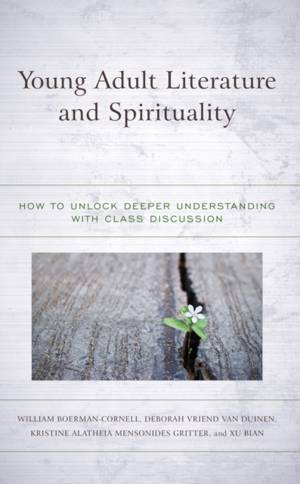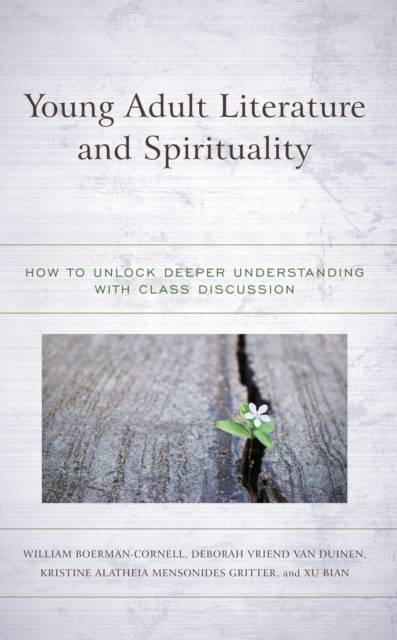
- Afhalen na 1 uur in een winkel met voorraad
- Gratis thuislevering in België vanaf € 30
- Ruim aanbod met 7 miljoen producten
- Afhalen na 1 uur in een winkel met voorraad
- Gratis thuislevering in België vanaf € 30
- Ruim aanbod met 7 miljoen producten
Zoeken
Young Adult Literature and Spirituality
How to Unlock Deeper Understanding with Class Discussion
William Boerman-Cornell, Deborah Vriend Van Duinen, Kristine Alatheia Mensonides Gritter, Xu Bian
Hardcover | Engels
€ 135,95
+ 271 punten
Uitvoering
Omschrijving
This book offers revolutionary approaches to in-class discussions about young adult literature. It shows teachers how to think more widely than the themes of a book to consider how they might operate as prayers of lament, yearning, anger, confession, thankfulness, reconciliation, joy, obedience, pilgrimage, contemplation, and equanimity. It also offers a variety of ways for classroom discussion to consider a representative sentence or two from a young adult novel, and from that allow students to connect to linked passages in the rest of the novel. These approaches for classroom discussion are drawn from a variety of contemplative traditions, including Jewish and Christian faith traditions and include florilegium, lectio divina, PaRDeS, Ignatian Imagination, havruta, and marginalia. Drawing from a range of in-class experiences, the authors explain each approach in the context of twelve popular and critically interesting young adult novels including The Hate U Give, Long Way Down, Speak, The Poet X, The Fault in our Stars, Brown Girl Dreaming, and others. This book will transform discussions that are disconnected from the book, lacking in relevance, or missing the energy that drives good conversation into meaningful and energetic class discussions that students and teachers alike will value.
Specificaties
Betrokkenen
- Auteur(s):
- Uitgeverij:
Inhoud
- Aantal bladzijden:
- 180
- Taal:
- Engels
- Leeftijd:
Eigenschappen
- Productcode (EAN):
- 9781475862096
- Verschijningsdatum:
- 28/10/2022
- Uitvoering:
- Hardcover
- Formaat:
- Genaaid
- Afmetingen:
- 152 mm x 229 mm
- Gewicht:
- 439 g

Alleen bij Standaard Boekhandel
+ 271 punten op je klantenkaart van Standaard Boekhandel
Beoordelingen
We publiceren alleen reviews die voldoen aan de voorwaarden voor reviews. Bekijk onze voorwaarden voor reviews.








